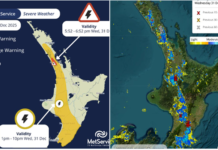Tongan children are a key focus of the government’s fight against obesity and other Non-Communicable Diseases.
The kingdom’s Minister for Health, Dr Saia Ma’u Piukala, told the 9th Global Conference on Health Promotion in Shanghai recently that what he called “the obesity epidemic” was affecting young people in the kingdom.
Hon. Piukala cited the example of a primary school in Tonga where a 2011 study found that 30% of the students between five to seven were either overweight or obese.
“Overweight and obesity rates of more than 80% and even 90% of the adult population is common among many Pacific countries and diabetes prevalence of around 20% and more are not uncommon,” the Minister said.
“The resultant burden of disease is significant especially given services for treatment of complications of NCDs including bypass surgery for heart disease, renal dialysis for kidney failure and proper prostheses for amputees are mostly not available.”
Hon. Piukala said the Tongan government was confident that the likelihood of success and change in behaviour is more likely in children when they are still developing their habits.
Many children were growing up in an environment that encouraged weight gain and obesity.
There was a decline in physical activity with children spending more time on TV and video games and eating junk food.
“This does not mean we are neglecting the adults,” Hon. Piukala said.
“We understand that adults’ behaviour around children is an important determinant of children’s behaviour in the future.”
Ensuring that children grew up in the right environments was critical is addressing NCDs
To make schools more supportive of the fight against NCDs, the government looked closely at what kinds of food were allowed to be sold on school grounds.
One of the school initiatives was the Mai e 5 or Gimme 5 programme, a collaboration between the Ministry of Education and private enterprise involved in vegetable and fruit production to encourage more vegetable and fruit intake among school children.
Another way of fighting obesity was to tax fizzy drinks.
According to Tonga’s Global School-based health survey conducted in 2010, 56.3% of students ages 13-15 years reported drinking carbonated soft drinks one or more times per day during the past 30 days
The government imposed the first tax on soft drinks in 2013. In 2016 the tax was 33 cents per can.
The Minister said the government was optimistic about reaching the NCD targets set by the United Nations under the Sustainable Development Goals.
“With the continued multi-sectoral collaboration both at national and international level, we will continue to have reason to remain optimistic that we will achieve our goal,” he said.
“We need strong political commitment and collaboration to address this global challenge of childhood obesity and NCD.s”
The main points
- Tongan children are a key focus of the government’s fight against obesity and other non-communicable diseases.
- The kingdom’s Minister for Health, Dr Saia Ma’u Piukala, told the 9th Global Conference on Health Promotion in Shanghai recently that what he called “the obesity epidemic” was affecting young people in the kingdom.
- Piukala cited the example of a primary school in Tonga where a 2011 study found that 30% of the students between five to seven were either overweight or obese.
- He said the Tongan government was confident that the likelihood of success and change in behaviour is more likely in children when they are still developing their habits.
For more information
National Strategy for Prevention and Control of NCDs
Pacific islanders pay heavy price for abandoning traditional diet







